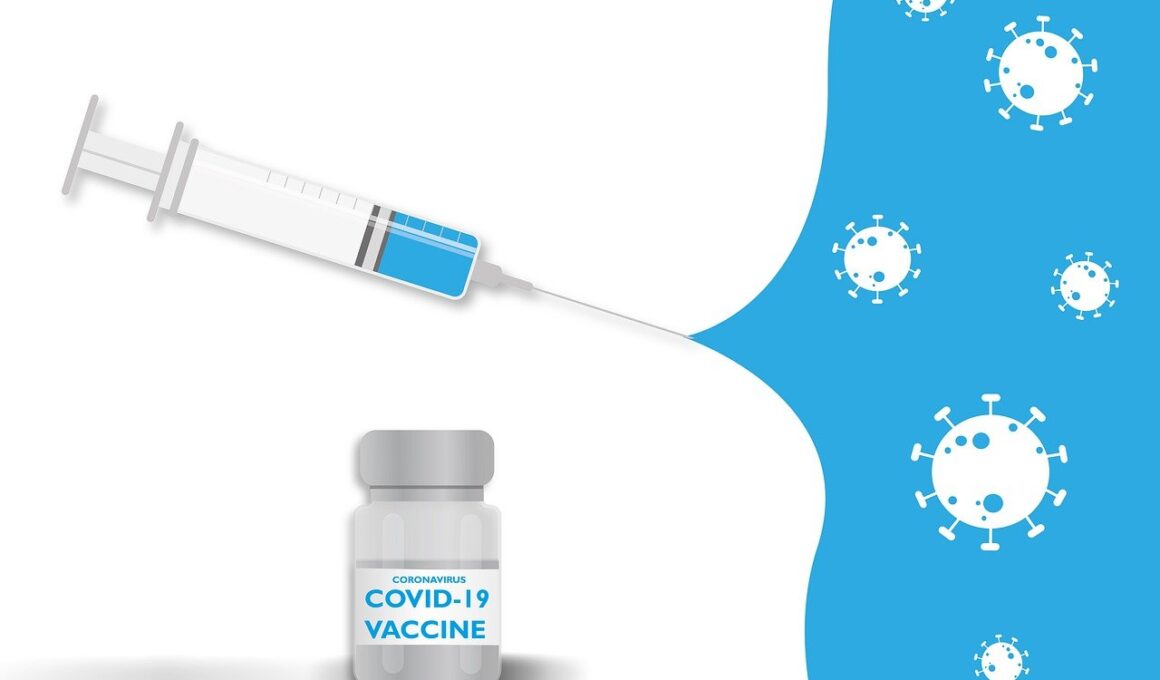Healthcare Grants Focused on Disease Prevention
Healthcare grants targeted at disease prevention play a pivotal role in improving public health outcomes. These grants are typically provided by federal and state governments, private foundations, and nonprofit organizations. By focusing on preventing diseases, we can reduce healthcare costs and enhance the quality of life for individuals. Initiatives funded through these grants aim to address a range of health issues, including chronic diseases, mental health, and substance abuse. Organizations applying for these grants can include hospitals, research institutions, community health organizations, and educational programs. The application process varies based on the grantor’s requirements, but it often involves the submission of detailed project proposals. These proposals should clearly outline the problem to be addressed, the proposed solutions, and the estimated budget. Steps for identifying suitable funding opportunities include researching various grant programs and networking with relevant organizations in the healthcare sector. Funded projects often require progress reports to track effectiveness and impact. Ultimately, the benefits of securing healthcare grants lie in the potential to prevent diseases, save lives, and improve community health. Collaboration across sectors truly enhances the effectiveness of these grants, maximizing their reach and impact.
In order to effectively secure healthcare grants focused on disease prevention, organizations must consider several key factors. First, developing a clear mission statement and objectives can help articulate the goals of the project. These elements are vital when responding to grant application guidelines. Understanding the needs of the target population and clearly distinguishing how the project will address those needs is also crucial. Engaging with stakeholders, including community members and health professionals, can provide valuable insights and bolster the proposal’s credibility. It is important to conduct a thorough review of existing literature and data related to the target health issues, as this strengthens the justification for the proposed project. Moreover, utilizing past successful grant applications as templates can provide guidance. Organizations should also implement rigorous program evaluation methods to measure outcomes and impacts. Grant funders appreciate comprehensive evaluations, which provide evidence of a project’s effectiveness. Funding for disease prevention initiatives is available from various sources, including government agencies and private foundations. Careful vigilance in tracking upcoming grant opportunities ensures timely applications. Networking through professional organizations and attending relevant conferences can also introduce potential collaborators and funding sources, enhancing grant application success.
Types of Healthcare Grants
Healthcare grants aimed at disease prevention come in numerous forms, catering to diverse healthcare needs. Some of the most common types include research grants, project grants, and capacity-building grants. Research grants support the exploration of innovative approaches to prevent diseases and improve public health strategies. Project grants are awarded for specific initiatives designed to meet immediate community health needs, such as immunization campaigns and awareness programs. Capacity-building grants focus on strengthening the skills and capability of healthcare organizations to deliver effective interventions. These grants are critical for developing workforce training and enhancing existing services. Furthermore, grants may also focus specifically on marginalized populations, ensuring that their unique health challenges receive attention. State and local health departments often play a crucial role in funding initiatives that target particular disease prevention efforts in their jurisdictions. Nonprofit organizations and private foundations, such as the Robert Wood Johnson Foundation, often support initiatives that align with their health priorities. These various grant types ensure that communities can address their specific health needs, support innovation, and ultimately improve population health outcomes. Depending on the grant type, timelines and fund distribution may also vary significantly, requiring strategic planning.
Evaluation and accountability are crucial aspects of healthcare grants dedicated to disease prevention. Funder agencies require organizations to demonstrate measurable outcomes that result from funded projects. This requirement emphasizes the importance of ongoing assessment and continuous improvement. Organizations should develop clear metrics for tracking progress towards achieving their objectives. These metrics might include data on health improvements, increased access to care, or enhanced community engagement. Collecting data at baseline and throughout the project enables organizations to assess the effectiveness of their initiatives objectively. Moreover, organizations may need to share their findings with grantors and the community, raising awareness of their activities and outcomes. Engaging stakeholders in the evaluation process can also foster a collaborative approach for sustained support. Adjusting project strategies based on evaluation results ensures that programs remain effective over time. Transparency in reporting financial spending and outcomes is not only a requirement but also promotes trust among stakeholders and funders. Ultimately, effectively evaluating funded projects contributes to a culture of accountability while also shaping future grant applications. Lessons learned can inform not only the organization but the broader field through shared insights on what works in disease prevention.
Challenges in Grant Acquisition
Organizations pursuing healthcare grants for disease prevention often encounter numerous challenges during the application process. One significant hurdle is the highly competitive nature of grant funding. Many organizations compete for limited funds, resulting in a rigorous selection process that can eliminate promising initiatives. Additionally, the requirements for documentation and detailed proposals can overwhelm smaller organizations. Limited grant-writing expertise may hinder the ability to create compelling applications that stand out. Furthermore, shifting priorities among funders can create uncertainty for organizations trying to align their projects with available funding. Changes in government policies, societal trends, and health crises can also affect funding opportunities, making it essential for organizations to remain flexible and adaptive. Developing strong relationships with funders can mitigate some of these challenges by fostering open communication and feedback opportunities. Continuous investment in grant-writing and project management skills can enhance an organization’s competitive edge in the funding landscape. Diversifying funding sources, including pharmaceutical companies and private benefactors, can also amplify an organization’s financial stability. Ultimately, understanding and navigating these challenges is crucial for successful grant acquisition and the sustainability of impactful disease prevention initiatives.
Successful partnerships are integral to the effectiveness of healthcare grants aimed at disease prevention. Collaboration between various stakeholders can enhance the reach and impact of funded projects. By bringing together different organizations with complementary skills and resources, it becomes easier to address complex health issues. Partnerships can include public-private collaborations, where hospitals and businesses unite to sponsor health initiatives. Nonprofits and government agencies can work together to create more comprehensive solutions tailored to specific community needs. Furthermore, engaging community members in planning and implementing projects builds trust and fosters a sense of ownership over health outcomes. Innovative approaches, such as leveraging technology and digital health solutions, benefit from partnerships aimed at data sharing and outreach. Organizations should consider cross-sector collaborations to tackle social determinants of health, focusing on broader issues influencing disease prevention. Evaluation methods and shared learnings can be strengthened through partnerships as stakeholders commit to achieving common goals. Effective communication among partners is essential in maintaining alignment and enhancing project execution. Ultimately, fostering collaborations leads to stronger, more sustainable health initiatives that have a greater potential for positive community influence.
The Future of Healthcare Grants
Looking ahead, the future of healthcare grants focused on disease prevention appears promising but requires continuous adaptation. As public health challenges evolve, so too must funding strategies to meet new needs. The rise of telehealth and virtual care has revolutionized how healthcare is delivered, necessitating new funding approaches for innovative healthcare solutions. Policymakers and funders must consider technological advancements when designing grant programs fostering equitable access to care. Emphasizing preventive measures and proactive health management will remain a priority, recognizing the cost-effectiveness these approaches can yield. Future grant funding may also address social determinants of health, reflecting the growing understanding of their crucial role in disease prevention. Incorporating diversity, equity, and inclusion principles into grant programs will be vital in ensuring that underserved communities receive necessary support. Increased cross-sector collaboration and investment in research will facilitate groundbreaking initiatives focused on prevention. Furthermore, advancing data collection and analysis practices will enable organizations to demonstrate successful outcomes effectively. Ultimately, as the healthcare landscape continues to change, so too must the strategies employed to secure and distribute healthcare grants, ensuring impactful and sustainable disease prevention efforts.
In conclusion, healthcare grants dedicated to disease prevention are essential for enhancing public health outcomes. Engaging in the grant application process requires careful consideration, collaboration, and commitment. Understanding the types of available grants and overcoming challenges can create lasting impacts on communities and health organizations involved. By continuously evaluating programs and adapting to new challenges and opportunities, organizations can ensure the success of their initiatives. The role of partnerships and stakeholder engagement cannot be overlooked, as collaborative efforts maximize the positive effects of funded projects. Looking to the future, it will be essential to stay abreast of trends and innovations in healthcare funding. Focusing on social determinants of health and equity ensures that our collective efforts uplift marginalized communities effectively. Continued advocacy for increased funding opportunities will support disease prevention initiatives critical to safeguarding population health. Overall, investing in comprehensive grant programs will yield significant long-term benefits, not only for individuals but for society as a whole. With careful planning and execution, organizations can secure adequate resources to dramatically alter the trajectory of disease prevention and public health. The commitment to this path should be unwavering as we collectively work towards healthier futures.


